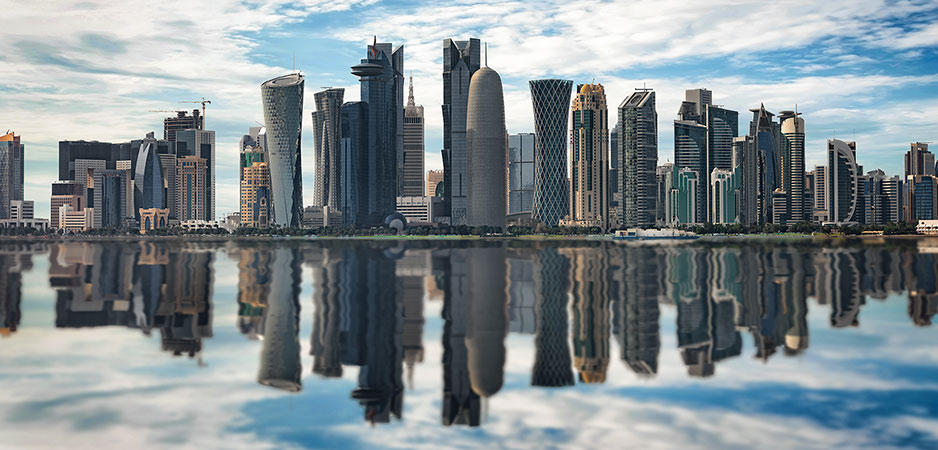Turkey deepened its cooperation with Qatar during the blockade imposed by the Arab quartet in 2017, when the tiny emirate was most vulnerable and highly reliant on outside assistance for food supplies and security against perceived threats from its neighbors as well as the threat of an internal coup. Given that restoring diplomatic ties announced earlier this month with the Gulf Cooperation Council (GCC) and the opening of borders and airspace will make Qatar less dependent on Turkey, it might appear surprising that President Recep Tayyip Erdogan welcomed the agreement and expects benefits for Turkey and the Gulf states.
Navigating the Minefield of Arab Politics
The current “solidarity and stability” deal between Qatar and the GCC plus Egypt makes no mention of the 13 demands of 2017, which included closing the Turkish military base and halting military cooperation with Ankara. While full clarification of the deal’s terms and impact will have to wait, it clearly does not resolve all the problems between Qatar and its Gulf neighbors. There are challenges ahead, with three plausible consequences for Turkey.
Three Scenarios
First is the continuation of the status quo, where relations between Qatar and Turkey carry on largely unchanged. Although Doha’s relations with Riyadh improve, the rivalry between the United Arab Emirates and Egypt remains, and Qatar will not necessarily change its foreign policy. Saudi Arabia and its Arab quartet allies — the UAE, Bahrain and Egypt — cannot achieve with carrots what they failed to accomplish with sticks.
Continuation of the status quo would not, however, make Qatar Turkey’s unconditional ally; Ankara never had absolute influence over Doha. While Qatar did refuse to endorse an Arab League condemnation of Turkish military operations in Syria and Iraq in 2016, it chose not to block a later communique reflecting the same sentiment. Qatar Petroleum also joined ExxonMobil in signing exploration and production-sharing contracts with Cyprus in 2017, which contradicts Turkey’s Eastern Mediterranean policy. In this scenario, Turkey’s proactive, militaristic foreign policy will continue unchanged, from Syria to Libya. But Ankara will need to spend more effort on maintaining its relationship with a more independent Qatar.
The second scenario is regional isolation. If Turkey loses its influence over Qatar as the latter’s relations with its neighbors revive, this will leave Ankara further isolated in the region. The Arab quartet had hoped that blockading Qatar would draw Doha away from Turkish and Iranian influence and squash its independent foreign policy. The plan failed and brought about the opposite effect: Qatar increased its cooperation with Turkey and deepened its ties with Iran.
Following reconciliation, Saudi Arabia and its allies might pursue a more realistic, limited set of goals such as curbing rather than eradicating Turkish presence and influence in Qatar. This approach has a better chance of achieving results and would be a challenge to Turkey. Following the GCC summit, UAE Foreign Minister Anwar Gargash said that some issues would take longer to fix than others: “One of the big things will be the geostrategic dimensions, how do we see regional threats, how do we see the Turkish presence? Is Turkey’s presence in the Gulf going to be permanent?”
Finally, there is the option of reconciliation with the Gulf region. Turkey’s disputes with Saudi Arabia and the UAE did not start with the Qatar blockade and will not end with its lifting. However, by agreeing to end the blockade without asking Qatar to concede any of their original main demands, Saudi Arabia and its allies have acknowledged a new power balance in the Gulf. That might give Qatar the leverage to mediate between Turkey and Saudi Arabia. Turkey would then benefit from the thaw.
Separate reconciliation processes are already underway between Turkey, Saudi Arabia, Israel and Egypt. According to Mithat Rende, former Turkish ambassador to Qatar, at the same time as communication was reestablished between Qatar and Saudi Arabia, another channel was opened between Istanbul and Riyadh. Ankara has also engaged in backdoor diplomacy and intelligence cooperation with Israel and Egypt.
A Truce
There can be no reconciliation without an agreement to seek common ground regarding geostrategic approaches in the region. The price for Ankara could be to moderate its approaches across the Arab world and exercising restraint in Libya, Syria and Iraq. The fact that the Saudis are currently more focused on potential threats from Iran rather than on Turkish intervention in the Middle East provides a promising context for negotiations. Reconciliation between Turkey and Saudi Arabia would also constrain the Emiratis and the Egyptians, for whom stopping Turkey’s activities is more urgent than Qatar downgrading its ties with Iran.
Turkish-Saudi efforts to find a compromise may receive a boost from Qatar. In Doha, Turkey now has a well-connected ally in the Gulf that could serve Ankara’s ends, which are also in its own interests. Although it is unlikely that Ankara will change its geostrategic direction in order to gain friendlier relations with the Gulf states, it will still benefit from Doha restoring relations with Riyadh and its allies.
To use an analogy from war, the GCC deal is a truce rather than a peace agreement. And it is still work in progress. If rapprochement within the GCC facilitates reconciliation with Turkey, this could lead to a broader process potentially including Israel, which is itself in a parallel process of normalizing relations with Arab countries such as Bahrain, the UAE, Sudan and Morocco. If, on the other hand, the GCC and Egypt manage to gradually detach Qatar from Turkey, this will have negative repercussions for Turkey’s militaristic policies in Syria and Libya, at least financially — as Qatar funds Turkey’s partners and proxies — and politically.
Greater regional isolation and reconciliation with the Gulf would both constrain Turkey’s activities in conflicts such as Syria and Libya. European engagement, in the form of pressure on all sides to achieve resolution, would be useful. By contributing to stability in the region such efforts could ameliorate the associated security and migration challenges.
*[This article was originally published by the German Institute for International and Security Affairs (SWP), which advises the German government and Bundestag on all questions related to foreign and security policy.]
The views expressed in this article are the author’s own and do not necessarily reflect Fair Observer’s editorial policy.
Support Fair Observer
We rely on your support for our independence, diversity and quality.
For more than 10 years, Fair Observer has been free, fair and independent. No billionaire owns us, no advertisers control us. We are a reader-supported nonprofit. Unlike many other publications, we keep our content free for readers regardless of where they live or whether they can afford to pay. We have no paywalls and no ads.
In the post-truth era of fake news, echo chambers and filter bubbles, we publish a plurality of perspectives from around the world. Anyone can publish with us, but everyone goes through a rigorous editorial process. So, you get fact-checked, well-reasoned content instead of noise.
We publish 2,500+ voices from 90+ countries. We also conduct education and training programs
on subjects ranging from digital media and journalism to writing and critical thinking. This
doesn’t come cheap. Servers, editors, trainers and web developers cost
money.
Please consider supporting us on a regular basis as a recurring donor or a
sustaining member.
Will you support FO’s journalism?
We rely on your support for our independence, diversity and quality.






